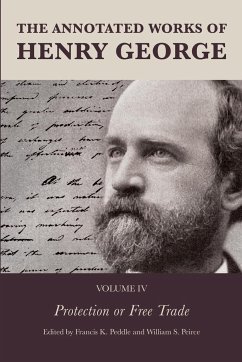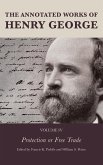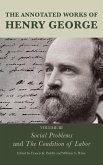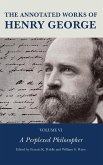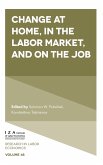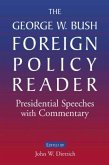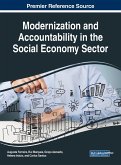Henry George (1839-1897) rose to fame as a social reformer and economist amid the industrial and intellectual turbulence of the late nineteenth century. His best-selling Progress and Poverty (1879) captures the ravages of privileged monopolies and the woes of industrialization in a language of eloquent indignation. His reform agenda resonates as powerfully today as it did in the Gilded Age, and his impassioned prose and compelling thought inspired such diverse figures as Leo Tolstoy, John Dewey, Sun Yat-Sen, Winston Churchill, and Albert Einstein. This six-volume edition of The Annotated Works of Henry George assembles all his major works for the first time with new introductions, critical annotations, extensive bibliographical material, and comprehensive indexing to provide a wealth of resources for scholars and reformers. Volume IV of this series presents the unabridged text of Protection or Free Trade (1886). Read into the U.S. Congressional Record in its entirety in 1892, Protection or Free Trade is one of the most well articulated defenses in the nineteenth century for the free exchange of goods, services, and labor. By exposing the monopolistic practices and the privileging of special interests in the trade policies of his time, George constructed a monumental theoretical bulwark against the apologists for protective tariffs and diverse trade preferences. Free trade today is often associated with a neo-liberal agenda that oppresses working people. In Protection or Free Trade George argues that free trade, when linked with land value taxation or the systematic collection of economic rent, reduces wealth and income inequality. True free trade elevates the condition of labor to a degree far greater than any form of trade protectionism. The full and original text of Protection or Free Trade presented in Volume IV of The Annotated Works of Henry George is supplemented by annotations which explain George's many references to the trade policies and disputes of his day. A new index augments accessibility to the text, the annotations, and their key terms. The introductory essay by Professor William S. Peirce, "Henry George and the Theory and Politics of Trade," provides the historical, political, and conceptual context for George's debates with the prominent political economists and trade experts of his time. Trade barriers typically serve the interests of a few and impede the overall economic progress of society. Protectionism fosters poverty and animates global conflict. The development of trade policy cannot be pursued in isolation from the broader principles of sound economics and a radical tax reform that benefits labor.
Hinweis: Dieser Artikel kann nur an eine deutsche Lieferadresse ausgeliefert werden.
Hinweis: Dieser Artikel kann nur an eine deutsche Lieferadresse ausgeliefert werden.

